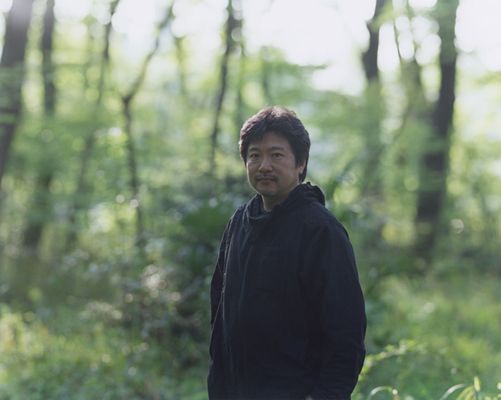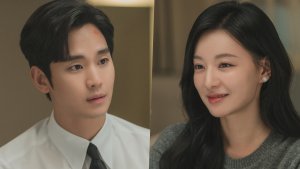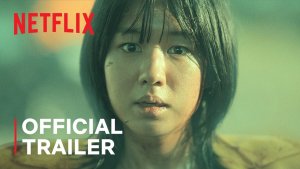 A Stalker's Guide to Shin Ha Kyun
A Stalker's Guide to Shin Ha Kyun
Director:
n. the person responsible for the interpretive aspects of a stage, film, or television production; the person who supervises the integration of all the elements, as acting, staging, and lighting, required to realize the writer's conception.
Director and screenwriter, Hirokazu Koreeda
This article began as a conundrum. How ought I to format it? For all intents and purposes would it not be a Stalker’s Guide? Yet though I love his work, my love isn't with Koreeda-san but his cinematic achievements. My knowledge of him stops at the camera. So perhaps an editorial piece, masquerading as a film guide? These worries almost derailed me. See, after I finished all these beautiful films, only one thing was on my mind. I wanted to share them with everyone here at MDL. Writing, formatting, none of these things are my strong suit. How might I present these works of art to you excellent individuals?
Ah! Then it finally came to me. Why not let the films speak for themselves? Watching them will illustrate Koreeda's incredible talent better than I could hope to in only a few paragraphs. Here, I will guide you through 9 beautiful films to the best of my ability. But first a few facts about Koreeda-san and his style to add perspective:
~He once intended to be a novelist. Koreeda-san often writes the screenplays for his movies (with the notable exception being Maboroshi).
~He started out as a documentarian. Koreeda-san dabbled in themes of memory, mourning, and mortality, and continues to do so.
~He often bases his films on personal experiences. For instance: "Still Walking" was inspired by the death of his mother and the conversations shared during her final days.
~ He is called the "Modern Ozu" in homage to Ozu Yasujiro. The legendary Ozu was a pioneering director, whose focus on life themes earned him a place among the top Japanese directors of all time. One can best see the comparison when weighing "Maboroshi no Hikari" and "Floating Weeds," against each other. Both men share a penchant for intimate scene composition, as well as landscape shots devoid of people.
~ He casts his film using a stable of favorites. Familiar actors appear in every piece, even if only as a cameo. Notable examples include Abe Hiroshi, Tadanobu Asano, Iura Arata, and Kirin Kiki. Try to look out for them, it can be fun!
Maboroshi no Hikari [1995]
("A Trick of the Light")
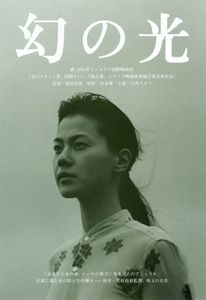
Synopsis:
“Why?” That is the most human of questions. We always seek its answer but life, being what it is, often fails to oblige. Yumiko is a woman haunted by whys, and these unresolved questions follow her even into her dreams. She loses herself in the daily joys of love and motherhood, yet this respite doesn't last for long. Her dear husband is wrenched from her by unexpected suicide, and again our heroine is left to ask “Why?” But despite uncertainty and pain, life chugs along and so does Yumiko—onto another marriage, perhaps a new life by the sea. But can she be happy as things stand? Or is she simply distracting herself from what may never be settled?
Cast: Esumi Makiko, Tadanobu Asano
Themes: death, grief, acceptance, uncertainty
Points of Interest:
~Beautiful locales
~Symbolic costuming
~Rich, iconic cinematography
~Powerful performance from the female lead
~Inspired score
After Life[1998]
(“Wonderful Life”)
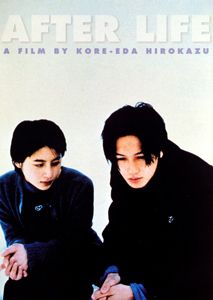
Synopsis:
When our lives come to a close, we each expect something different. Some believe in another world prepared by their creator, whether wrought in joy or flame; others, that they will be snuffed out like a candle and returned unknowing to cosmic dust. But what if the true destination of the soul was a third, unexpected alternative? Before we continue, please take a moment to choose whichever memory you love best. Once you are absolutely sure, answer this: would it be worth keeping if all others disappeared? In After Life, the departed must make this selection with more lasting consequence. This memory is where their souls will reside in perpetuity. No person but those present, no feeling but what was felt—the memory will remain unchanged. To help with selection, the departed are joined by counselors to interview them and coax out the strongest mementos of existence. But who are these mysterious counselors? What will their charges choose as their after life? Perhaps most importantly, what would you?
Cast: Iura Arata, Terajima Susumu, Oda Erika, Iseya Yusuke
Themes: death, life, memory, perception
Points of Interest:
~After Life is considered a "hybrid movie"; it watches half like a documentary, half a traditional film
~Fascinating subject matter
~Most of the actors portraying the departed were hired from the street; the film features their personal memories, largely unscripted
~Oddly funny, yet often haunting
~Leaves the viewer with food for thought
Distance [2001]

*Based on true events. Possibly disturbing content.
Synposis:
On March 20, 1995, a religious cult known as Omu Shinrikyo (Supreme Truth)
released sarin gas into multiple lines of the Tokyo subway system. Thirteen
were killed, thousands of others injured in varying degrees of permanency. This
act of terrorism known as Chikatetsu Sarin Jiken (Subway Sarin Incident)
remains one of the worst attacks perpetrated by domestics in modern Japanese
history. With a purpose not to titillate, frighten, or shock, but to place into
perspective, Distance conjures up the specter of the incident. It was released only
five years after its occurrence.
Three years after religious cult Ark of Truth released a fatal virus into Tokyo's water supply, people are still in mourning. Among these are four youths, who have decided to undertake a pilgrimage to the deceptively beautiful lake where the tragedy began. What else can be done when they ache for the “wrong” victims? For their loved ones are not innocent, but cult members who died in the attack. Our leads arrive safely at the lake, but the trip soon takes a complicated turn. They are forced to shelter at what was once cult headquarters. Here, they meet the only survivor of the deadly attack: a reformed cultist named Sakata. This Sakata, who bore witness to the final night in the lives of their loved ones…. Another night passes, and memories come to life in this strange place.
Cast: Iura Arata, Shinohara Ryoko, Iseya Yusuke, Asano Tadanobu
Themes: death, grief, religion, healing, uncertainty
Points of Interest:
~Strong Ensemble Cast
~Beautiful locales, particularly the lake
~Alternatively creepy and breathtaking cinematography
~Darkest Koreeda film in terms of light, color, and subject matter
Nobody Knows [2004]
(“Dare mo Shiranai”)
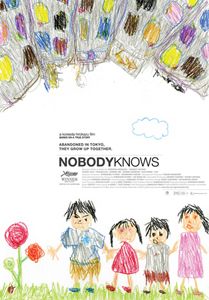
*Based on true events. Possibly disturbing content.
Synopsis:
Leaving her eldest son (aged barely fourteen years) little more than ¥50,000
and the monumental task of caring for three younger siblings, a mother
walked out of their shared apartment forever. Her attractive life with a new
lover could not brook the “burdens” of children. Because only the boy entered into the koseki (family register) no official government record existed of his brothers and sisters. Because neither he nor they ever formally entered school, no teacher could raise the alarm to help them. Over the next nine months, no one noticed these children struggle.
Known on the international stage as Nobody Knows, Dare mo Shiranai was inspired by the tragedy of these forgotten children.
Cast: Yagira Yuuya, Kitaura Ayu, YOU
Themes: child neglect, childhood, loneliness, innocence, family
Points of Interest:
~Excellent child actors led by Yagira Yuya
~Symbolic cinematography and carefully composed sets (particularly the apartment)
~Melodramatic subject matter handled without melodrama
~An intimate look into the minds and behavior of abandoned children
~Emotionally intense
~Nobody Knows was my first Koreeda film (and still my highest rated)
Hana [2006]
(“Hana Yori mo Naho/Even More Than Flowers”)
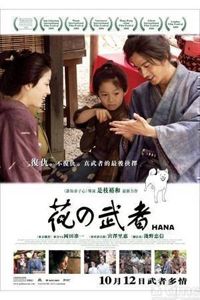
Synopsis:
Aside from European knights, no other warrior class experiences romanticizing quite like the samurai. Legends lift them into domestic and foreign imaginations, literature and cinema repaint history in lasting shades of martial arts and colorful bushido. Even living in the twilight of those beloved samurai days, Aoki Sozaemon must suffer the burdens of samurai fantasy. He is a member of a fallen samurai clan, the son of a murdered father. As he believes is expected, Soza dedicates himself to bloody revenge and reasserting honor. But idealism fills no bellies and youth cannot lead an inexperienced sword. The road he walks is always an impoverished, unhappy one.
Following an unreliable lead to Edo, Soza eventually settles in the slums. He teaches children letters to pay the bills—a vocation he enjoys against all odds. Soon, even love threatens to turn his head in the form of a sweet widow. But when sudden humiliation halts the pleasantries of normal life, Soza finally locates the object of his revenge. Caught between two perceptions of honor, should he carry out the murder after all? Might there be another way than that of the sword? Or is samurai honor all there is?
Cast: Okada Junichi, Miyazawa Rie
Themes: honor, revenge, perception, morality, reality vs. expectation
Points of Interest:
~Darkly funny
~Gorgeous costumes and dusty sets
~Simple cinematography, beautiful locales
~Unusual samurai story; little to no sword action
~Provokes thought on whether bushido is useful or not
Still Walking [2008]
(“Aruitemo, Aruitemo/Even if You Walk and Walk”)
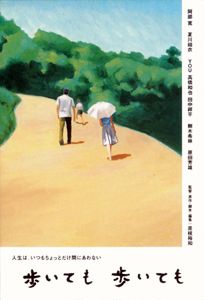
*Based on true events.
Synopsis:
If today were any other day for the Yokoyama family, it might have been merely ordinary. But if that were the case, their members might have never come together again. Today marks the memorial of a tragic death...and the birth of resentments which have long since opened a chasm in the family. Despite the potential for awkwardness, even the most wayward relatives converge on the old ancestral home to commiserate. Yet though mourners live on, how does death change them? How has it changed the Yokoyamas? Just because they are a family, will they always forgive and forget without bitterness? One simple reunion like this might reveal more than any of them were ever ready to admit....
Cast: Abe Hiroshi, Natsukawa Yui, Harada Yoshio, Kiki Kirin
Themes: family, mourning, pain, personal rifts, acceptance
Points of Interest:
~Strong ensemble cast
~The ancestral house is portrayed as an inanimate character
~Realistic dialogue and memory-stirring sound effects used to devastate
~Intimate cinematography
~Universally relatable
~Slow, yet packs emotional punch
Air Doll [2009]
(“Kuuki Ningyo”)
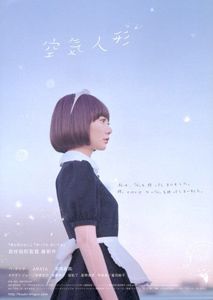
*Mature themes; not appropriate for all ages.
Synopsis:
Hideo and Nozomi could be a typical couple. They live together in an affordable (if modest) apartment. Spare moments are spent conversing at dinner or strolling. When Hideo returns from work, their routine almost ends with lovemaking. Their shared live progresses in a calm, predictable way. What a typical couple indeed...if only Nozomi was an actual woman and not an inflatable sex doll. But one day when she is left alone at home, a miracle occurs. Nozomi suddenly comes alive! Taken by the instant new curiosity of a living being, she ventures into Tokyo to taste the world and its experiences. But what does that entail? Who might she meet? What could she experience? This confused new soul must find something to answer her question: what does it mean to be alive? But will life disappoint her like it does so many others? Or can a plastic girl be complete after all?
Cast: Bae Doo Na, Iura Arata, Odagiri Joe, Itao Itsuji
Themes: fantasy, humanity, sex, love, loneliness, companionship
Points of Interest:
~Uncanny performance by Bae Doo Na
~Unique subject matter
~Intimate cinematography
~The only Koreeda's piece to feature sex as a major plot point
~Amazing ending
I Wish [2011]
(“Kiseki/Miracle”)
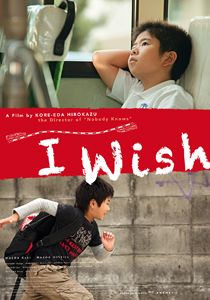
Synopsis:
The only distance between brothers Koichi and Ryunosuke once fell only between their age. But when their parents separate, they find themselves spread between Kagoshima and Fukuoka too. Under the ash-choked skies of Kagoshima, where an active volcano looms high above, Koichi fervently hopes his parents will reunite. He often keeps to himself and waits for phone calls from his brother. Younger and less wise, Ryunosuke enjoys new friendships and the country joys of Fukuoka. Though he misses his brother, his innocent happiness remains undeterred.
Months pass without change or discussion; the time frame for reconciliation is closing forever. Then Koichi hears about the miracle. "When two trains pass one another on different lines, whomever witnesses their convergence point is granted a wish." Believing these words with all the heart-breaking certainty of childhood, Koichi arranges a daring adventure. They must find the point where the trains meet…and create the miracle.
Cast: Maeda Koki, Maeda Oshiro, Odagiri Joe, Hashizume Isao
Themes: divorce, childhood, naiveté, distance, life change, hope, acceptance
Points of Interest:
~Excellent child cast, complete with real brothers in the lead roles
~Realistic take on childhood
~Gentle, joyous slice-of-life
~Unique and varied locales, including Kagoshima’s active volcano
Like Father, Like Son [2013]
(“Soshite Chichi ni Naru/And I Will Be His Father”)
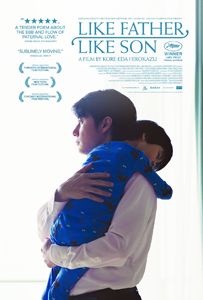
Synopsis:
What makes a father? Is it something decided by nature or molded through nurture? Is it what he can provide his children, whether by the material wealth he accrues or the example he sets? Might it be a simple matter of DNA or a bond of blood? Or could the answer rather be something as unscientific as love and time spent?
Whichever the case, uptight workaholic Nonomiya Ryota never questions his parenthood. In fact, he possesses a perfect family. His wife is a beautiful homemaker, their son Keita compliant and adorable (if not the precocious six year-old Ryota wishes he was). But all these comfortable givens are challenged when the hospital informs the Nonomiyas of a shocking truth. Keita is not actually their biological child. This boy they've loved for so long is the offspring of another family—in essence, switched at birth! When the initial shock subsides, the only roads become clear: the children must either be exchanged, or left where they are. In this trying time, Ryota struggles against reality with every shred of inflated capability he believes he has. But is he strong enough to reevaluate himself as a man and as a father? Or will he make a terrible mistake without realizing?
Cast: Fukuyama Masaharu, Ono Machiko, Lily Franky
Themes: fatherhood, parenting, family, love, switched-at-birth
Points of Interest:
~Strong ensemble cast, led by Fukuyama Masaharu
~Focus on family through the eyes of fathers
~Clever format allows the director to guide viewer perception and change them on
a dime
~Melodramatic subject matter handled without melodrama
~An important look the traditional mode of Japanese fathering—is harsh better?
~My sentimental favorite
These have been the films of Hirokazu Koreeda. If none of these interested you or you've already seen everything, don't fret! A new work entitled Umimachi Diary is slated for next year. It is based on the manga of the same name, and features the first predominantly female cast in the director's repertoire. For everyone else, did you see anything you like? Please let me know your thoughts on these films and/or the director below. I would be delighted to hear from you.

